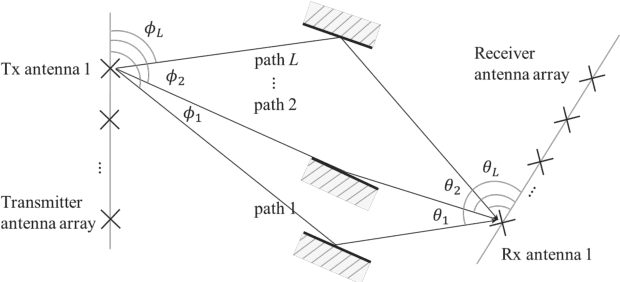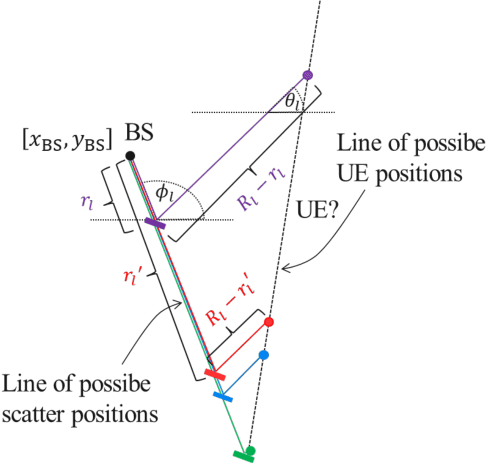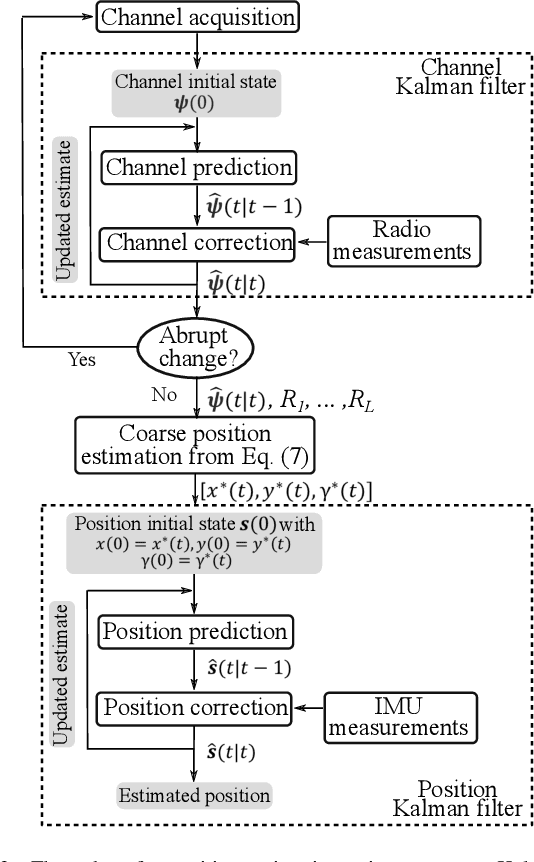Zhicheng Ye
Vehicular Positioning and Tracking in Multipath Non-Line-of-Sight Channels
Mar 31, 2022



Abstract:We consider the downlink transmission in a single cell multiple-input multiple-output system, in which the user equipment correspond to a vehicle moving along a given trajectory. This system utilizes millimeter wave channels characterized by multiple non-line-of-sight (NLoS) components. As it has been pointed out in several related works, in such systems radio access network (RAN)-based positioning can effectively improve the positioning accuracy achieved by Global Navigation Satellite Systems. However, the RAN-based positioning accuracy is highly dependent on the quality of the channel estimates, especially if multipath propagation is exploited. Recognizing that the communication channels between the serving base station and the vehicle as well as the geographical position of the vehicle can be advantageously modeled as inter-related autoregressive processes, we propose a two-stage Kalman filter algorithm employing two intertwined filters for channel tracking, position tracking and abrupt channel change detection. The first Kalman filter tracks angles-of-departure and angles-of-arrival associated with the communication channels, which are used to make a coarse position estimation. The second Kalman filter tracks the position of the vehicle utilizing the kinematic parameters of the vehicle. Simulation results clearly show the advantages of using the proposed scheme, which exploits the memoryful property of both the communication channels and the geographical positions, as compared to employing previously proposed single-stage or not properly combined filters in NLoS environments.
 Add to Chrome
Add to Chrome Add to Firefox
Add to Firefox Add to Edge
Add to Edge